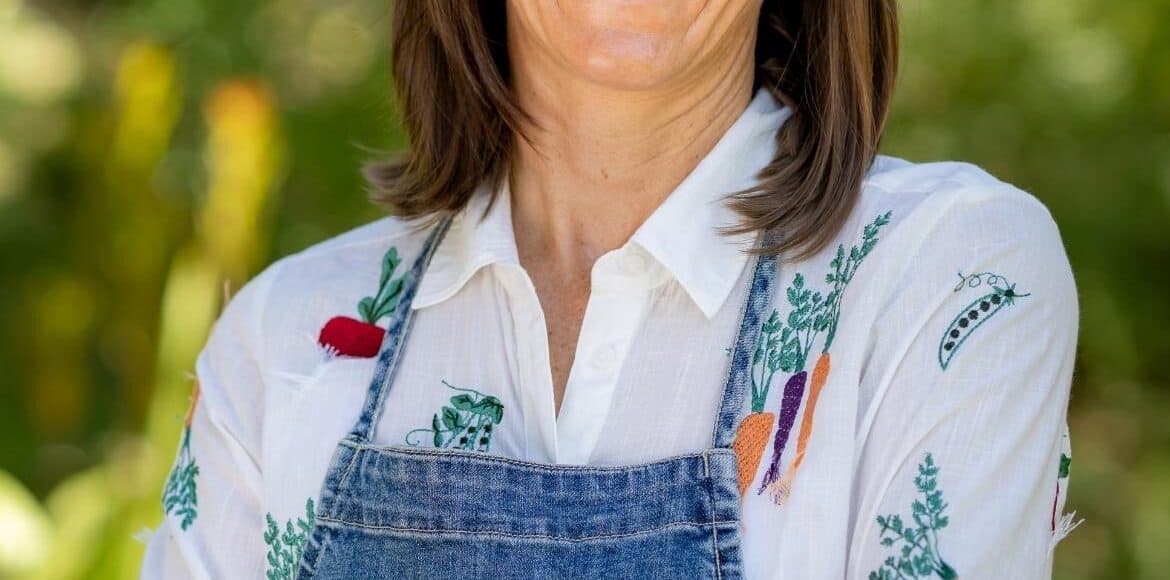
Apricot Lane Farms with Molly Chester
In Episode 61 of the Kitchen Confidante Podcast, Liren Baker talks with Molly Chester about how human gut health and soil health are interconnected, the importance of biodiversity on the farm, and how her farm comes to life in The Apricot Lane Farms Cookbook.
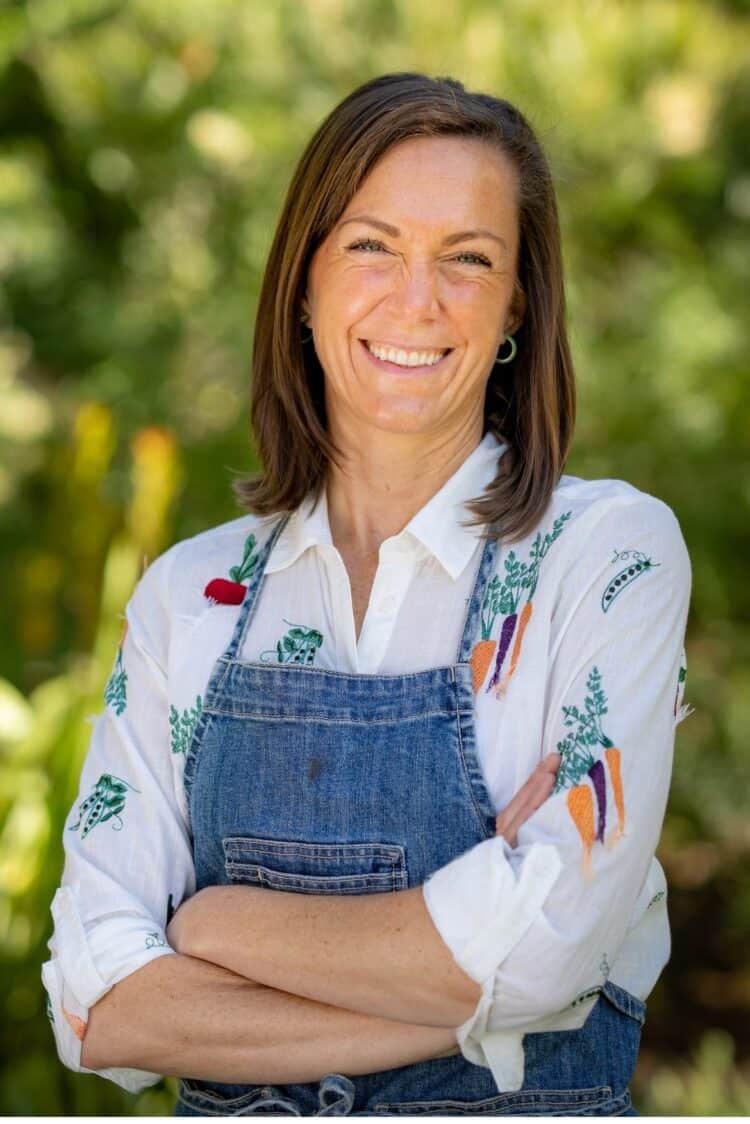
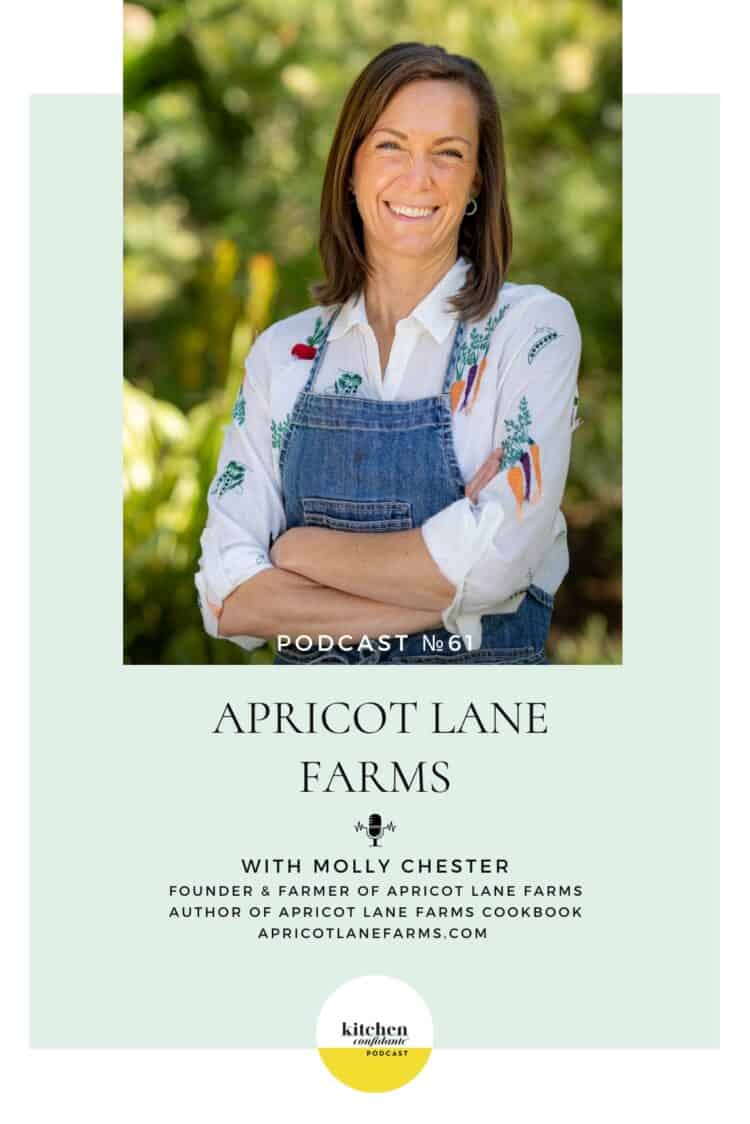
Regenerative and Biodynamic Farming — with Molly Chester of Apricot Lane Farms
On the podcast, I recently spoke with Molly Chester of Apricot Lane Farms. You may have heard of Molly and her farm from the award-winning documentary, The Biggest Little Farm. In the documentary, Molly and her filmmaker husband, John, share the inspiring story of how they left the urban jungle of LA to purchase and rehabilitate a neglected piece of land northwest of the city into a lush, biodynamic farm.
Apricot Lane Farms has since expanded to 234 thriving acres, where they continue to research, restore, educate, grow, and inspire. Molly recently published The Apricot Lane Farms Cookbook, which brings the farm’s bounty to all of us!
In this episode, we chat about how human gut health and soil health are interconnected, the importance of biodiversity on the farm, and how the farm comes to life in the cookbook.
Listen to the full episode here or keep reading for some of my favorite moments with Molly.
How did you become a farmer, chef, and cookbook author?
When I was about 9 or 10, I started to make connections about how the food I ate affected how I felt. This was in the mid-80s—a time full of canned foods, sugary snack foods, and other processed foods. So, I started packing my own lunch for school, including little salads and healthy snacks— and I could tell I felt better.
It still took me some time to get to cooking and farming. I studied business in college and worked for a time in the entertainment industry. I knew it wasn’t for me long-term, but it was where I met my husband! Working in the entertainment industry also helped me feel more comfortable with the documentary later on.
I started cooking on the side when I was looking for connection to something, and I found connection through food. My husband and I also planted a garden—and I loved it! I attended the Natural Gourmet Institute of Health and Culinary Arts and worked as a private chef for a while. I gained knowledge and dove deeper into how healing food can be. I began searching for farmers producing the kind of food I wanted to serve my clients, but I found a lot of holes. So, we decided to do some farming, and it took off from there!
What is biodynamic farming?
Biodynamic farming is really important to us because we are passionate about the connection between gut health and soil health.
So, we intentionally farm with a connection to the land and the natural world. Biodynamics is a tool to enhance that connection. Biodynamic farming is a regenerative farming tool that considers factors like the ecosystem, restoration practices, and wildlife around your farm.
Right now, we have over 75 varieties of fruit trees, 150+ varieties growing in the garden, and a wide variety of animals, each providing a purposeful input.
Tell us more about The Apricot Lane Farms Cookbook
Over the years, people have always been on the farm experimenting with our ingredients and creating recipes. We also make barn lunches and dinners for staff throughout the week.
So, the book is a reflection of what we regularly make and how elements of the farm work together. It is also the result of the collaboration between people on the farm over the past ten years. I think of it as a scrapbook of all the team has done together, and now we are so excited to share it!
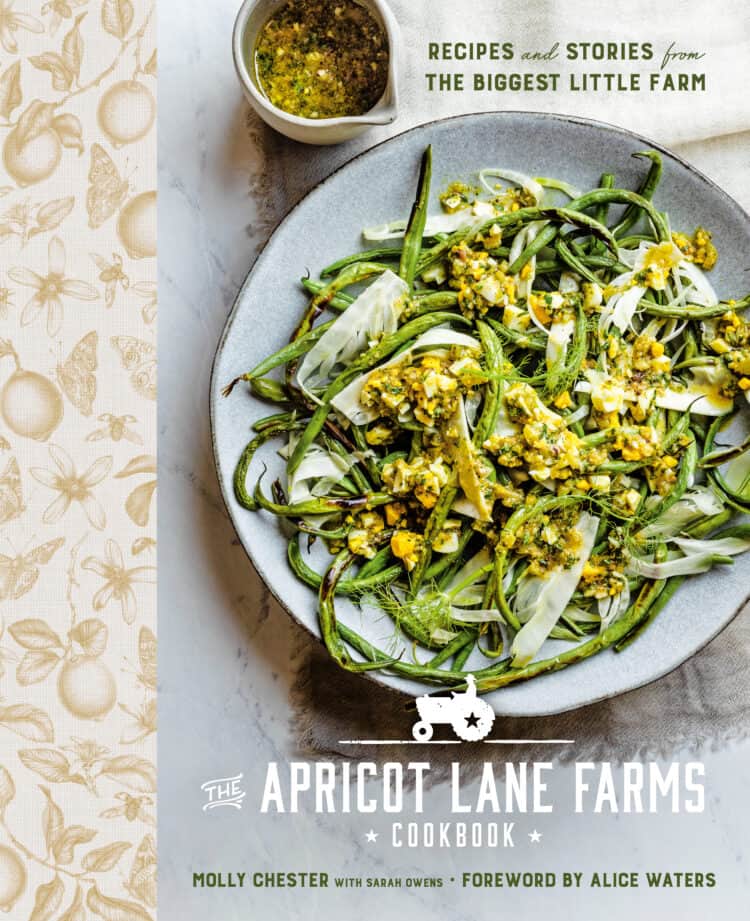
The Apricot Lane Farms Cookbook: Recipes and Stories from The Biggest Little Farm, by Molly Chester (Avery, 2022).
Learn more
Listen to the full podcast episode with Molly and learn more at apricotlanefarms.com or on Instagram @apricotlanefarms.
Related posts
Kale Tabbouleh with Apples, Almonds, and Pomegranate
Artichoke Salad with Fried Mozzarella
Ricotta Pizza with Prosciutto and Fresh Pea Salad

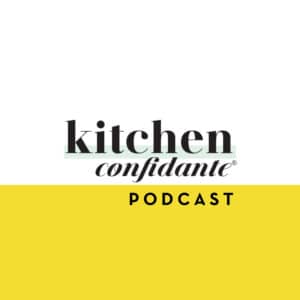
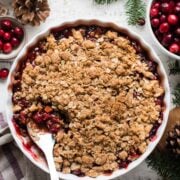
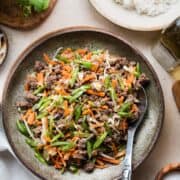

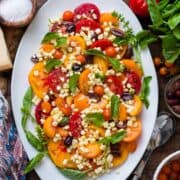
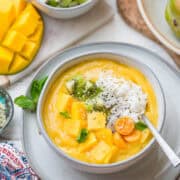
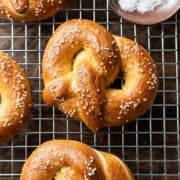
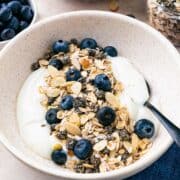
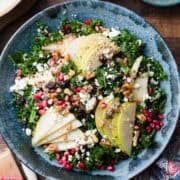
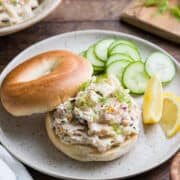
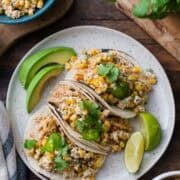
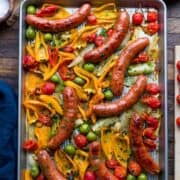
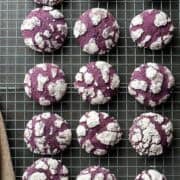

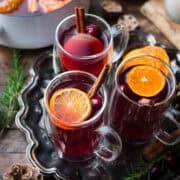
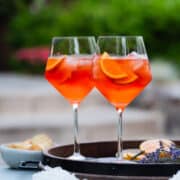
Comments